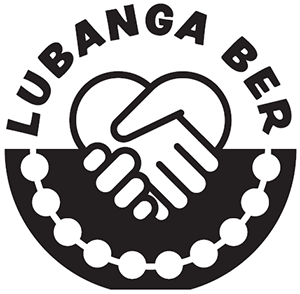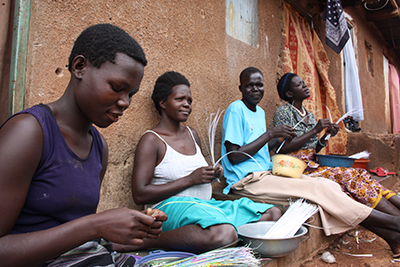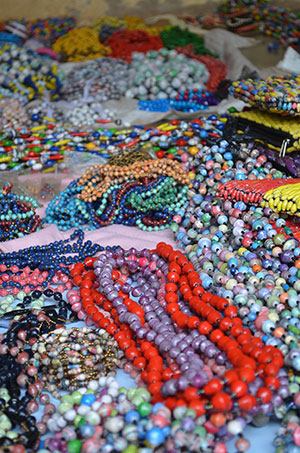 The Acholi community in Kampala is made up of members of the Acholi tribe who fled their tribal homelands in the early 1990’s due to the terror being caused in the area by the rebel group ‘The Lord’s Resistance Army’. They fled to Kampala to seek refuge, and have never returned, for many reasons.
The Acholi community in Kampala is made up of members of the Acholi tribe who fled their tribal homelands in the early 1990’s due to the terror being caused in the area by the rebel group ‘The Lord’s Resistance Army’. They fled to Kampala to seek refuge, and have never returned, for many reasons.
The Acholi community live in one of the poorest parts of Kampala, in an informal settlement that resembles slum-type conditions. Poverty is very high amongst the residents, with very few people having any formal employment. Most of the adults who work at all earn their money through informal and casual labour, or working in the nearby rock quarry, where they earn the equivalent of 25p per day. Thus there is very little regular income for these people.
 When it comes to the children, there are many orphans in the community, some of whom live with extended family, some with kind neighbours, and some in child-headed households. Many of these children have to go out to work rather than going to school, and the nature of this work is often very dangerous for them.
When it comes to the children, there are many orphans in the community, some of whom live with extended family, some with kind neighbours, and some in child-headed households. Many of these children have to go out to work rather than going to school, and the nature of this work is often very dangerous for them.
Only 40% of all the children in the community go to school at all, and of these many have sporadic attendance, based on whether their family has the money to pay the school fees for that term.
Nkuru-Nziza Foundation works with a 22-strong co-operative, mainly women, called Lubanga Ber Group (Acholi for “God is so good”). They make beads, bowls and other beautiful products out of recycled paper for sale locally and also to international teams that visit Uganda through Nkuru-Nziza Foundation.
 With the money, and the support of overseas donors, they started an adult literacy group for the women in 2015 and more recently have included men amongst the students. In 2016 they also started an educational day-care for children who are unable to attend school. The name of this programme is the “Hopeful Haven Children’s Programme’ as it provides a safe haven for the children who are otherwise roaming the streets all day, and provides hope for them as they learn to do simple education. It is also the channel through which some donors have started providing financial support to get the children into mainstream schools.
With the money, and the support of overseas donors, they started an adult literacy group for the women in 2015 and more recently have included men amongst the students. In 2016 they also started an educational day-care for children who are unable to attend school. The name of this programme is the “Hopeful Haven Children’s Programme’ as it provides a safe haven for the children who are otherwise roaming the streets all day, and provides hope for them as they learn to do simple education. It is also the channel through which some donors have started providing financial support to get the children into mainstream schools.
In 2017, the Lubanga Ber group started a simple community savings scheme, to offset the issue of not having any access to a bank, or opportunity to save. As this programme grows, the plan is to provide small loans to help individuals and pairs develop income-generating activities.
One key result from all these programmes is that there are now men, women and children in the community realising their dream of being able to read, write, do simple numeracy, and begin to plan for the future.
For more information please contact
